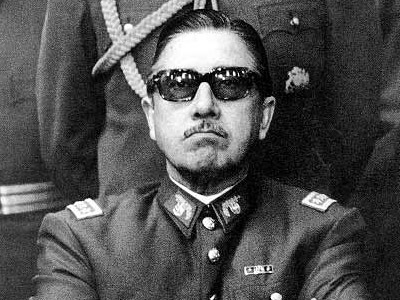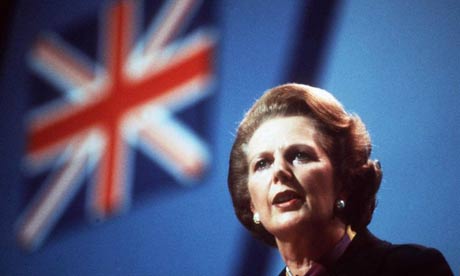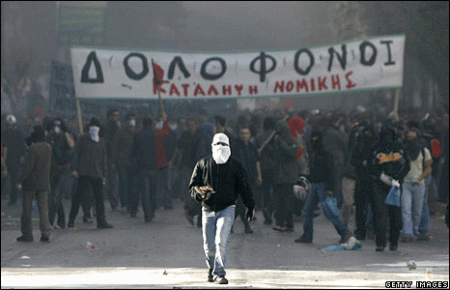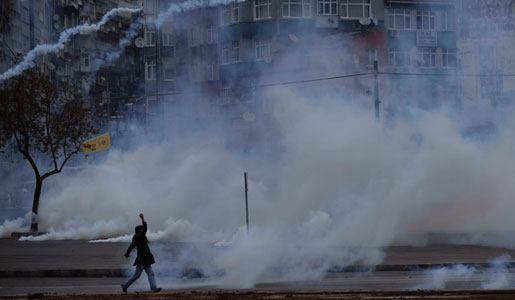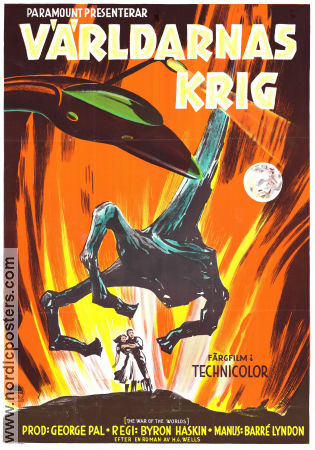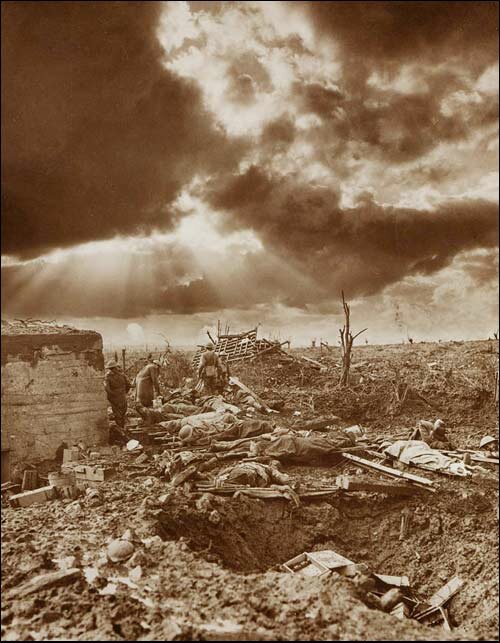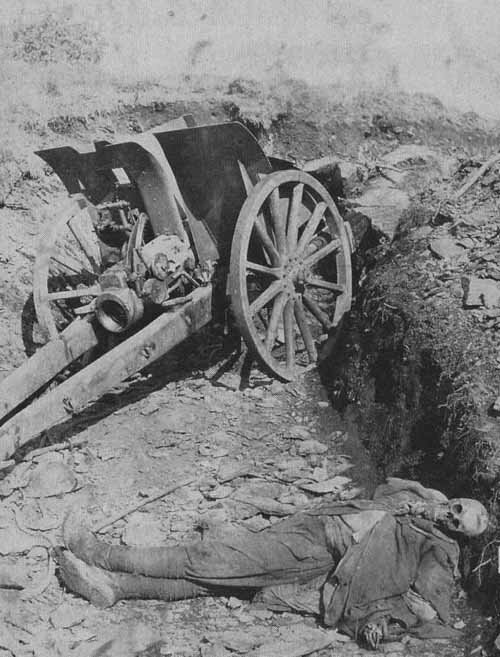The hope of the twentieth century rests on its recognition that war and depression are man-made and needless. They can be avoided in the future by turning from ... nineteenth-century characteristics ... and going back to other characteristics that our Western society has always regarded as virtues: generosity, compassion, cooperation, rationality, and foresight, and finding an increased role in human life for love, spirituality, charity, and self-discipline. Carroll Quigley
söndag 2 december 2012
Austerity
Ultimately, the wealth of any nation is its population. It is wasteful to reduce families to poverty. The aim should be to make them more productive. The economy is an overall system, which requires a regulatory and tax structure to steer wealth-seeking in ways that add to national output, not merely to benefit the rich (or foreign investors) at the expense of the poor.
fredag 26 oktober 2012
onsdag 12 september 2012
torsdag 30 augusti 2012
Tim Jackson
This is a strange, rather perverse, story, just to put it in very simple terms. It's a story about us, people, being persuaded to spend money we don't have on things we don't need to create impressions that won't last on people we don't care about.
onsdag 29 augusti 2012
torsdag 9 augusti 2012
tisdag 7 augusti 2012
Abandon all hope, ye who enter here
torsdag 2 augusti 2012
Pulp Fiction
There's a passage I got memorized. Ezekiel 25:17. "The path of the righteous man is beset on all sides by the inequities of the selfish and the tyranny of evil men. Blessed is he who, in the name of charity and good will, shepherds the weak through the valley of the darkness, for he is truly his brother's keeper and the finder of lost children. And I will strike down upon thee with great vengeance and furious anger those who attempt to poison and destroy My brothers. And you will know I am the Lord when I lay My vengeance upon you." Now... I been sayin' that shit for years. And if you ever heard it, that meant your ass. You'd be dead right now. I never gave much thought to what it meant. I just thought it was a cold-blooded thing to say to a motherfucker before I popped a cap in his ass. But I saw some shit this mornin' made me think twice. See, now I'm thinking: maybe it means you're the evil man. And I'm the righteous man. And Mr. 9mm here... he's the shepherd protecting my righteous ass in the valley of darkness. Or it could mean you're the righteous man and I'm the shepherd and it's the world that's evil and selfish. And I'd like that. But that shit ain't the truth. The truth is you're the weak. And I'm the tyranny of evil men. But I'm tryin', Ringo. I'm tryin' real hard to be the shepherd
Jules
Johnny B. Goode
When the power of love overcomes the love of power, the world will know peace.
- Jimi Hendrix
- Jimi Hendrix
måndag 23 juli 2012
Frihet
Freedom: who could object? Yet this word is now used to justify a thousand forms of exploitation. Throughout the rightwing press and blogosphere, among thinktanks and governments, the word excuses every assault on the lives of the poor, every form of inequality and intrusion to which the 1% subject us. How did libertarianism, once a noble impulse, become synonymous with injustice?
In the name of freedom – freedom from regulation – the banks were permitted to wreck the economy. In the name of freedom, taxes for the super-rich are cut. In the name of freedom, companies lobby to drop the minimum wage and raise working hours. In the same cause, US insurers lobby Congress to thwart effective public healthcare; the government rips up our planning laws; big business trashes the biosphere. This is the freedom of the powerful to exploit the weak, the rich to exploit the poor.
Rightwing libertarianism recognises few legitimate constraints on the power to act, regardless of the impact on the lives of others … [Its] concept of freedom looks to me like nothing but a justification for greed.
So why have we been so slow to challenge this concept of liberty? I believe that one of the reasons is as follows. The great political conflict of our age – between neocons and the millionaires and corporations they support on one side, and social justice campaigners and environmentalists on the other – has been mischaracterised as a clash between negative and positive freedoms. These freedoms were most clearly defined by Isaiah Berlin in his essay of 1958, Two Concepts of Liberty. It is a work of beauty: reading it is like listening to a gloriously crafted piece of music. I will try not to mangle it too badly.
Put briefly and crudely, negative freedom is the freedom to be or to act without interference from other people. Positive freedom is freedom from inhibition: it’s the power gained by transcending social or psychological constraints. Berlin explained how positive freedom had been abused by tyrannies, particularly by the Soviet Union. It portrayed its brutal governance as the empowerment of the people, who could achieve a higher freedom by subordinating themselves to a collective single will.
Rightwing libertarians claim that greens and social justice campaigners are closet communists trying to resurrect Soviet conceptions of positive freedom. In reality, the battle mostly consists of a clash between negative freedoms.
As Berlin noted: “No man’s activity is so completely private as never to obstruct the lives of others in any way. ‘Freedom for the pike is death for the minnows’.” So, he argued, some people’s freedom must sometimes be curtailed “to secure the freedom of others”. In other words, your freedom to swing your fist ends where my nose begins. The negative freedom not to have our noses punched is the freedom that green and social justice campaigns, exemplified by the Occupy movement, exist to defend.
Berlin also shows that freedom can intrude on other values, such as justice, equality or human happiness. “If the liberty of myself or my class or nation depends on the misery of a number of other human beings, the system which promotes this is unjust and immoral.” It follows that the state should impose legal restraints on freedoms that interfere with other people’s freedoms – or on freedoms which conflict with justice and humanity …
But rightwing libertarians do not recognise this conflict. They speak … as if the same freedom affects everybody in the same way. Theyassert their freedom to pollute, exploit, even – among the gun nuts – to kill, as if these were fundamental human rights. They characterise any attempt to restrain them as tyranny. They refuse to see that there is a clash between the freedom of the pike and the freedom of the minnow …
Modern libertarianism is the disguise adopted by those who wish to exploit without restraint. It pretends that only the state intrudes on our liberties. It ignores the role of banks, corporations and the rich in making us less free. It denies the need for the state to curb them in order to protect the freedoms of weaker people. This bastardised, one-eyed philosophy is a con trick, whose promoters attempt to wrongfoot justice by pitching it against liberty. By this means they have turned “freedom” into an instrument of oppression.
George Monbiot
In the name of freedom – freedom from regulation – the banks were permitted to wreck the economy. In the name of freedom, taxes for the super-rich are cut. In the name of freedom, companies lobby to drop the minimum wage and raise working hours. In the same cause, US insurers lobby Congress to thwart effective public healthcare; the government rips up our planning laws; big business trashes the biosphere. This is the freedom of the powerful to exploit the weak, the rich to exploit the poor.
Rightwing libertarianism recognises few legitimate constraints on the power to act, regardless of the impact on the lives of others … [Its] concept of freedom looks to me like nothing but a justification for greed.
So why have we been so slow to challenge this concept of liberty? I believe that one of the reasons is as follows. The great political conflict of our age – between neocons and the millionaires and corporations they support on one side, and social justice campaigners and environmentalists on the other – has been mischaracterised as a clash between negative and positive freedoms. These freedoms were most clearly defined by Isaiah Berlin in his essay of 1958, Two Concepts of Liberty. It is a work of beauty: reading it is like listening to a gloriously crafted piece of music. I will try not to mangle it too badly.
Put briefly and crudely, negative freedom is the freedom to be or to act without interference from other people. Positive freedom is freedom from inhibition: it’s the power gained by transcending social or psychological constraints. Berlin explained how positive freedom had been abused by tyrannies, particularly by the Soviet Union. It portrayed its brutal governance as the empowerment of the people, who could achieve a higher freedom by subordinating themselves to a collective single will.
Rightwing libertarians claim that greens and social justice campaigners are closet communists trying to resurrect Soviet conceptions of positive freedom. In reality, the battle mostly consists of a clash between negative freedoms.
As Berlin noted: “No man’s activity is so completely private as never to obstruct the lives of others in any way. ‘Freedom for the pike is death for the minnows’.” So, he argued, some people’s freedom must sometimes be curtailed “to secure the freedom of others”. In other words, your freedom to swing your fist ends where my nose begins. The negative freedom not to have our noses punched is the freedom that green and social justice campaigns, exemplified by the Occupy movement, exist to defend.
Berlin also shows that freedom can intrude on other values, such as justice, equality or human happiness. “If the liberty of myself or my class or nation depends on the misery of a number of other human beings, the system which promotes this is unjust and immoral.” It follows that the state should impose legal restraints on freedoms that interfere with other people’s freedoms – or on freedoms which conflict with justice and humanity …
But rightwing libertarians do not recognise this conflict. They speak … as if the same freedom affects everybody in the same way. Theyassert their freedom to pollute, exploit, even – among the gun nuts – to kill, as if these were fundamental human rights. They characterise any attempt to restrain them as tyranny. They refuse to see that there is a clash between the freedom of the pike and the freedom of the minnow …
Modern libertarianism is the disguise adopted by those who wish to exploit without restraint. It pretends that only the state intrudes on our liberties. It ignores the role of banks, corporations and the rich in making us less free. It denies the need for the state to curb them in order to protect the freedoms of weaker people. This bastardised, one-eyed philosophy is a con trick, whose promoters attempt to wrongfoot justice by pitching it against liberty. By this means they have turned “freedom” into an instrument of oppression.
torsdag 19 juli 2012
söndag 15 juli 2012
lördag 7 juli 2012
söndag 1 juli 2012
lördag 30 juni 2012
måndag 25 juni 2012
lördag 16 juni 2012
George Soros
I contend that the European Union itself is like a bubble. In the boom phase the EU was what the psychoanalyst David Tuckett calls a “fantastic object” – unreal but immensely attractive. The EU was the embodiment of an open society /…/
The process fed on its own success, very much like a financial bubble. That is how the Coal and Steel Community was gradually transformed into the European Union, step by step. /…/
The process culminated with the Maastricht Treaty and the introduction of the euro. It was followed by a period of stagnation which, after the crash of 2008, turned into a process of disintegration. /…/
The Maastricht Treaty was fundamentally flawed, demonstrating the fallibility of the authorities. Its main weakness was well known to its architects: it established a monetary union without a political union. /…/ In retrospect it is now clear that the main source of trouble is that the member states of the euro have surrendered to the European Central Bank their rights to create fiat money.
Ever since the Crash of 2008 there has been a widespread recognition, both among economists and the general public, that economic theory has failed. But there is no consensus on the causes and the extent of that failure.
I believe that the failure is more profound than generally recognized. It goes back to the foundations of economic theory. Economics tried to model itself on Newtonian physics. It sought to establish universally and timelessly valid laws governing reality. But economics is a social science /…/ taking an axiomatic approach similar to Euclid’s geometry. /…/
Up to a point the axiomatic approach worked. For instance, the theory of perfect competition postulated perfect knowledge. But the postulate worked only as long as it was applied to the exchange of physical goods. When it came to production, as distinct from exchange, or to the use of money and credit, the postulate became untenable because the participants’ decisions involved the future and the future cannot be known until it has actually occurred.
The process fed on its own success, very much like a financial bubble. That is how the Coal and Steel Community was gradually transformed into the European Union, step by step. /…/
The process culminated with the Maastricht Treaty and the introduction of the euro. It was followed by a period of stagnation which, after the crash of 2008, turned into a process of disintegration. /…/
The Maastricht Treaty was fundamentally flawed, demonstrating the fallibility of the authorities. Its main weakness was well known to its architects: it established a monetary union without a political union. /…/ In retrospect it is now clear that the main source of trouble is that the member states of the euro have surrendered to the European Central Bank their rights to create fiat money.
Ever since the Crash of 2008 there has been a widespread recognition, both among economists and the general public, that economic theory has failed. But there is no consensus on the causes and the extent of that failure.
I believe that the failure is more profound than generally recognized. It goes back to the foundations of economic theory. Economics tried to model itself on Newtonian physics. It sought to establish universally and timelessly valid laws governing reality. But economics is a social science /…/ taking an axiomatic approach similar to Euclid’s geometry. /…/
Up to a point the axiomatic approach worked. For instance, the theory of perfect competition postulated perfect knowledge. But the postulate worked only as long as it was applied to the exchange of physical goods. When it came to production, as distinct from exchange, or to the use of money and credit, the postulate became untenable because the participants’ decisions involved the future and the future cannot be known until it has actually occurred.
tisdag 29 maj 2012
måndag 28 maj 2012
Varför är Sverige i Afghanistan?
FN och världssamfundet står inför stora och omfattande utmaningar i Afghanistan. Sverige vill bidra till en långsiktig lösning av Afghanistans problem och deltar därför i de internationella ansträngningarna i landet. Det svenska engagemanget ska stärka Afghanistans förmåga att upprätthålla stabilitet och säkerhet, demokrati och mänskliga rättigheter och erbjuda afghanerna förutsättningar för att förbättra sina levnadsvillkor och en hållbar ekonomisk och social utveckling.
Och Talibanerna, vad säger dom?
"These are the enemies of Islam who originated from Pakistan. They are the Pakistani police, soldiers and their supporters who recently lined up six kids in Swat and shot them execution style. These Pakistanis are now our captive and we will avenge the death of the children by doing the same to them."


lördag 19 maj 2012
torsdag 10 maj 2012
torsdag 3 maj 2012
lördag 21 april 2012
Avreglering
The way economies are organized and function is significantly the product of social choices, not the product of nature. Over the past thirty years we (society) have embraced a set of economic ideas that shaped economic arrangements – including the pattern of income distribution, the power of corporations and finance relative to labor, and the way in which the economy generates demand.
This shaping of economic arrangements was obviously driven by political forces acting on behalf of corporate and financial elite interests, but economic ideas also played a critical role. First, the ideas of mainstream economists provided justification for the re-shaping of the economy in ways that elite interests wanted. Second, mainstream economists put forward additional ideas that were picked up and incorporated into the policy project of corporate and financial elites. Third, the monopoly capture of economic discourse by mainstream economics served to exclude other competing economic ideas from making it on to the policy table, into classrooms, and into the public debate.
The implication of this view is the crisis is at a deep level the product of a flawed economic policy paradigm derived from a set of flawed economic ideas. Escaping the crisis means replacing that policy paradigm and the ideas from which it derives. That is a massive challenge involving both a political contest and an intellectual contest. We need to win both. One without the other will be useless. It is no good winning the political contest if you simply replace Tweedledum (hardcore neoliberals) with Tweedledee (softcore neoliberals). Likewise, it is no good winning the intellectual contest if you do not win the political contest to implement different economic policy ideas.
My argument is that around 1980 the U.S. adopted a fundamentally flawed economic paradigm. From 1945 through to the mid-1970s the U.S. economy was characterized by a “virtuous circle” Keynesian growth model built on full employment and wage growth tied to productivity growth. The political triumph of Ronald Reagan enshrined a new economic paradigm that abandoned full employment and severed the link between wages and productivity growth.
The new paradigm was fundamentally flawed. One flaw was that it relied on debt and asset price inflation to fuel growth instead of wages. A second flaw was the model of globalization which created an economic gash in the form of leakage of spending on imports (the trade deficit), leakage of investment spending offshore, and leakage of manufacturing jobs offshore. These twin flaws created a growing demand gap.
That is where finance enters the picture as its role was to fill the demand gap. Financial deregulation, regulatory forbearance, financial innovation, financial mania, and plain vanilla financial fraud kept the economy going by making ever more credit available, However, as the economy cannibalized itself by undercutting income distribution and accumulating debt, it needed ever larger speculative bubbles to grow. The house price bubble was simply the last and biggest bubble and was effectively the only way around the stagnation that would otherwise have developed in 2001.
There are many mainstream (orthodox) economists who have progressive values but they miss the big picture because their theory cannot accommodate it. Moreover, they can’t abandory for a host of psychological and sociological reasons. At the psychological level it would involve a devastating admission that they have been wrong; that they’ve been teaching their students a lot of nonsense for thirty years. n their theoAt the sociological level it would mean giving up the trappings of power and pay that go with their current intellectual monopoly because the paymasters of the system would quickly replace them with others.
That said, many mainstream economists are starting to admit income distribution has played a role in fermenting the crisis (you have to be willfully blind not too see it). Consequently, they are busy trying to incorporate income distribution into their narrative. However, they do so in a way that leaves their core theory about markets and market efficiency unchanged. Unfortunately, journalists and the general public cannot see this and are taken in by this tactic. One of the contributions of the book is it unmasks these obfuscations by showing how these stories don’t stack up and are inconsistent with the evidence.
Finally, this discussion shows why it is very important the general public be capable of distinguishing between “values” and “analysis”. If not, people risk being fooled by the rhetoric of progressive values that provides cover for policies that are actually conservative.
fredag 13 april 2012
Filosofi för psykopater
It is not hard to see why Rand appeals to billionaires. She offers them something that is crucial to every successful political movement: a sense of victimhood. She tells them that they are parasitised by the ungrateful poor and oppressed by intrusive, controlling governments.
It is harder to see what it gives the ordinary teabaggers, who would suffer grievously from a withdrawal of government … I wonder how many would continue to worship at the shrine of Ayn Rand if they knew that towards the end of her life she signed on for both Medicare and Social Security. She had railed furiously against both programmes, as they represented everything she despised about the intrusive state. Her belief system was no match for the realities of age and ill-health.
But they have a still more powerful reason to reject her philosophy: as Adam Curtis’s documentary showed last year, the most devoted member of her inner circle was Alan Greenspan. Among the essays he wrote for Ayn Rand were those published in a book he co-edited with her called Capitalism: the Unknown Ideal. Here, starkly explained, you’ll find the philosophy he brought into government. There is no need for the regulation of business – even builders or Big Pharma – he argued, as “the ‘greed’ of the businessman or, more appropriately, his profit-seeking … is the unexcelled protector of the consumer.” As for bankers, their need to win the trust of their clients guarantees that they will act with honour and integrity. Unregulated capitalism, he maintains, is a “superlatively moral system”.
Once in government, Greenspan applied his guru’s philosophy to the letter, lobbying to cut taxes for the rich and repeal the laws constraining the banks, refusing to regulate the predatory lending and the derivatives trading which eventually brought the system down. Much of this is already documented, but Weiss shows that in the US Greenspan has successfully airbrushed this history.
Despite the many years he spent at her side, despite his previous admission that it was Rand who persuaded him that “capitalism is not only efficient and practical but also moral,” he mentioned her in his memoirs only to suggest that it was a youthful indiscretion, and this, it seems, is now the official version. Weiss presents powerful evidence that even today Greenspan remains her loyal disciple, having renounced his partial admission of failure to Congress.
Saturated in her philosophy, the new right on both sides of the Atlantic continues to demand the rollback of the state, even as the wreckage of that policy lies all around. The poor go down, the ultra-rich survive and prosper. Ayn Rand would have approved.
söndag 18 mars 2012
Filmtajm
Land monopoly is not the only monopoly, but it is by far the greatest of monopolies -- it is a perpetual monopoly, and it is the mother of all other forms of monopoly.Winston Churchill
Real Estate 4 Ransom from Real Estate 4 Ransom on Vimeo.
måndag 27 februari 2012
lördag 25 februari 2012
söndag 19 februari 2012
Omnis Vestri Substructio Es Servus Ad Nobis
"If the American people ever allow private banks to control the issue of their currency, first by inflation, then by deflation, the banks and corporations that will grow up around them will deprive the people of all property until their children wake up homeless on the continent their Fathers conquered...I believe that banking institutions are more dangerous to our liberties than standing armies... The issuing power should be taken from the banks and restored to the people, to whom it properly belongs."
Greece became the stage for the fist social political explosion of the current world economic maelstrom because it is the weakest link, economically and politically, in the chain of the Euro-zone countries.
söndag 12 februari 2012
fredag 10 februari 2012
Soldiers! Don’t fight for slavery! Fight for liberty!
I’m sorry, but I don’t want to be an emperor. That’s not my business. I don’t want to rule or conquer anyone. I should like to help everyone, if possible, Jew, gentile, black man, white. We all want to help one another. Human beings are like that. We want to live by each other’s happiness — not by each other’s misery. We don’t want to hate and despise one another.
In this world there is room for everyone. And the good earth is rich and can provide for everyone. The way of life can be free and beautiful, but we have lost the way. Greed has poisoned men’s souls, has barricaded the world with hate, has goose-stepped us into misery and bloodshed. We have developed speed, but we have shut ourselves in. Machinery that gives abundance has left us in want. Our knowledge has made us cynical. Our cleverness, hard and unkind. We think too much and feel too little. More than machinery we need humanity. More than cleverness we need kindness and gentleness. Without these qualities, life will be violent and all will be lost.
The aeroplane and the radio have brought us closer together. The very nature of these inventions cries out for the goodness in men, cries out for universal brotherhood, for the unity of us all. Even now my voice is reaching millions throughout the world — millions of despairing men, women and little children — victims of a system that makes men torture and imprison innocent people. To those who can hear me, I say — do not despair. The misery that is now upon us is but the passing of greed — the bitterness of men who fear the way of human progress. The hate of men will pass, and dictators die, and the power they took from the people will return to the people and so long as men die, liberty will never perish.
Soldiers! Don’t give yourselves to brutes — men who despise you — enslave you — who regiment your lives — tell you what to do — what to think or what to feel! Who drill you, diet you, treat you like cattle, use you as cannon fodder. Don’t give yourselves to these unnatural men — machine men with machine minds and machine hearts! You are not machines! You are not cattle! You are men! You have the love of humanity in your hearts. You don’t hate! Only the unloved hate — the unloved and the unnatural!
Soldiers! Don’t fight for slavery! Fight for liberty! In the 17th Chapter of St. Luke it is written: “the Kingdom of God is within man” — not one man nor a group of men, but in all men! In you! You, the people have the power — the power to create machines. The power to create happiness! You, the people, have the power to make this life free and beautiful, to make this life a wonderful adventure.
Then, in the name of democracy, let us use that power! Let us all unite! Let us fight for a new world, a decent world that will give men a chance to work, that will give youth the future and old age a security. By the promise of these things, brutes have risen to power, but they lie! They do not fulfill their promise; they never will. Dictators free themselves, but they enslave the people! Now, let us fight to fulfill that promise! Let us fight to free the world, to do away with national barriers, to do away with greed, with hate and intolerance. Let us fight for a world of reason, a world where science and progress will lead to all men’s happiness.
Soldiers! In the name of democracy, let us all unite!
torsdag 9 februari 2012
tisdag 7 februari 2012
onsdag 1 februari 2012
0,1 procent
| Så här lite är 0,1 procent, säger chefen för IMF Christine Lagarde. |
Anders Borg då? Han hävdar att lånet på 140 miljarder Svenska skattepengar är väldigt, väldigt, väldigt, väldigt bra. Svenska skattebetalare "lånar" ut 140 miljarder mot 0,1% ränta till IMF/ECB som sen köper grekiska statsobligationer mot 4%. Svinräntan hamnar i fickorna på plutokraterna och det grekiska folket svälter.
"Après nous le déluge" (Efter oss syndafloden). Madame de Pompadour
måndag 30 januari 2012
Set Sail for Fail
Kate winslet's character uses leonardo's character's lower class vitality to restore her ego, he draws a picture of her, she gets all the attention to make her feel better, but when he is freezing or frozen to death in the ocean, hanging by the side, she has no use for him anymore and let's him go sink. No more use to her now, so she disposes.... What a love story.. Superior class dynamic with Inferior class...
The term is also known as "boarding the failboat". A Failboat representing the action/activity that is deemed to likely end in a Fail. Noobs tend to be the captains of such vessels.
söndag 29 januari 2012
Gas Gas
Från Ekot kan vi nu läsa att polisen skall få använda tårgas i sitt samtal med medborgarna. Vad är då tårgas? Jo det är ca: 33% brom-Br . och ca: 66% aceton-OC(CH3)2 . Man får vara glad, i tider som dessa, att ordningsmakten inte ännu förfallit till att använda Vätecyanid-HCN i sin korrespondens med befolkningen.
lördag 28 januari 2012
fredag 27 januari 2012
New Deal
Roosevelt's Second Bill of Rights
“This Republic had its beginning, and grew to its present strength, under the protection of certain inalienable political rights—among them the right of free speech, free press, free worship, trial by jury, freedom from unreasonable searches and seizures. They were our rights to life and liberty.
As our Nation has grown in size and stature, however—as our industrial economy expanded—these political rights proved inadequate to assure us equality in the pursuit of happiness.
We have come to a clear realization of the fact that true individual freedom cannot exist without economic security and independence. "Necessitous men are not free men." People who are hungry and out of a job are the stuff of which dictatorships are made.
In our day these economic truths have become accepted as self-evident. We have accepted, so to speak, a second Bill of Rights under which a new basis of security and prosperity can be established for all regardless of station, race, or creed.
Among these are:
The right to a useful and remunerative job in the industries or shops or farms or mines of the Nation;
The right to earn enough to provide adequate food and clothing and recreation;
The right of every farmer to raise and sell his products at a return, which will give him and his family a decent living;
The right of every businessman, large and small, to trade in an atmosphere of freedom from unfair competition and domination by monopolies at home or abroad;
The right of every family to a decent home;
The right to adequate medical care and the opportunity to achieve and enjoy good health;
The right to adequate protection from the economic fears of old age, sickness, accident, and unemployment;
The right to a good education.
All of these rights spell security. And after this war is won we must be prepared to move forward, in the implementation of these rights, to new goals of human happiness and well-being. ”
New Deal, Den nya given, var USA:s president Franklin D. Roosevelts reformprogram av 1933, som genom att skapa arbetstillfällen för de arbetslösa syftade till att häva den allt djuparedepression som hade börjat med börskraschen på Wall Street 1929. New Deal låg till grund för Roosevelts politik 1933-38. Viktiga delar därav förklarades dock olagliga av Högsta Domstolen, men i mera moderat form fortsattes reformprogrammet till hans död 1945 och delvis även därefter av Harry S. Truman (1945-53), som dock även hade ett eget program kallat Fair Deal.
"New Deal" kallas på svenska också "Den nya given", där giv är ett uttryck hämtat från kortspel. Uttrycket användes första gången av Roosevelt i ett tal under demokraternas nationella konvent 1932 då han hade blivit utsedd till partiets presidentkandidat: "I pledge you, I pledge myself to a new deal for the American people."
New Deal bestod av olika delprogram. De viktigaste var National industrial recovery act (stöd till industrin) och Agricultural adjustment act (stöd till jordbrukare) och Public works administration (igångsättandet av offentliga arbeten)
Staten satte igång arbeten, bland annat vägbyggen. I det fattiga Tennessee öppnade man fabriker och byggde dammar. Bönderna fick låna pengar så att de kunde köpa moderna maskiner till jordbruk bland annat och dra in elektrisk ström i sina hus. Det fick betalt för att inte odla på vissa fält. På det sättet skulle det inte bli överskott av livsmedel och för låga priser. Fackföreningarna fick rätt att förhandla om löneavtal för sina medlemmar och man stiftade lagar om socialförsäkringar.
“This Republic had its beginning, and grew to its present strength, under the protection of certain inalienable political rights—among them the right of free speech, free press, free worship, trial by jury, freedom from unreasonable searches and seizures. They were our rights to life and liberty.
As our Nation has grown in size and stature, however—as our industrial economy expanded—these political rights proved inadequate to assure us equality in the pursuit of happiness.
We have come to a clear realization of the fact that true individual freedom cannot exist without economic security and independence. "Necessitous men are not free men." People who are hungry and out of a job are the stuff of which dictatorships are made.
In our day these economic truths have become accepted as self-evident. We have accepted, so to speak, a second Bill of Rights under which a new basis of security and prosperity can be established for all regardless of station, race, or creed.
Among these are:
The right to a useful and remunerative job in the industries or shops or farms or mines of the Nation;
The right to earn enough to provide adequate food and clothing and recreation;
The right of every farmer to raise and sell his products at a return, which will give him and his family a decent living;
The right of every businessman, large and small, to trade in an atmosphere of freedom from unfair competition and domination by monopolies at home or abroad;
The right of every family to a decent home;
The right to adequate medical care and the opportunity to achieve and enjoy good health;
The right to adequate protection from the economic fears of old age, sickness, accident, and unemployment;
The right to a good education.
All of these rights spell security. And after this war is won we must be prepared to move forward, in the implementation of these rights, to new goals of human happiness and well-being. ”
New Deal, Den nya given, var USA:s president Franklin D. Roosevelts reformprogram av 1933, som genom att skapa arbetstillfällen för de arbetslösa syftade till att häva den allt djuparedepression som hade börjat med börskraschen på Wall Street 1929. New Deal låg till grund för Roosevelts politik 1933-38. Viktiga delar därav förklarades dock olagliga av Högsta Domstolen, men i mera moderat form fortsattes reformprogrammet till hans död 1945 och delvis även därefter av Harry S. Truman (1945-53), som dock även hade ett eget program kallat Fair Deal.
"New Deal" kallas på svenska också "Den nya given", där giv är ett uttryck hämtat från kortspel. Uttrycket användes första gången av Roosevelt i ett tal under demokraternas nationella konvent 1932 då han hade blivit utsedd till partiets presidentkandidat: "I pledge you, I pledge myself to a new deal for the American people."
New Deal bestod av olika delprogram. De viktigaste var National industrial recovery act (stöd till industrin) och Agricultural adjustment act (stöd till jordbrukare) och Public works administration (igångsättandet av offentliga arbeten)
Staten satte igång arbeten, bland annat vägbyggen. I det fattiga Tennessee öppnade man fabriker och byggde dammar. Bönderna fick låna pengar så att de kunde köpa moderna maskiner till jordbruk bland annat och dra in elektrisk ström i sina hus. Det fick betalt för att inte odla på vissa fält. På det sättet skulle det inte bli överskott av livsmedel och för låga priser. Fackföreningarna fick rätt att förhandla om löneavtal för sina medlemmar och man stiftade lagar om socialförsäkringar.
Från Wikipedia
GLÖM ALDRIG ATT "war and depression are man-made and needless"
Fy på dig Sosse vad du luktar skit
Socialdemokraterna säger nu ja till att Sverige ska kunna gå med i europakten.
Europakten handlar om att hålla banker och andra spekulerare på den jobblösa ”tillväxtmarknaden” skadeslösa medan notan för skuldberget vältras på skattebetalarna, vilket kommer att rasera nationalstaterna och göra EU till ett laglöst land.
Europakten handlar om att hålla banker och andra spekulerare på den jobblösa ”tillväxtmarknaden” skadeslösa medan notan för skuldberget vältras på skattebetalarna, vilket kommer att rasera nationalstaterna och göra EU till ett laglöst land.
onsdag 25 januari 2012
Nya Vapen
tisdag 17 januari 2012
Apokalyptisk tid
Bibliska gestalter skrida
fram i tidens ström.
Vem är vid din sida?
Rör ej vid hans söm.
Dåren tror att ny är tiden
och av mänska född.
Sedan evigt rasar striden
dit du nu blir nödd.
Med sitt svärd i vrede blottat
fram en ängel går,
där mot människan han måttat
öppnat böld och sår.
Ryttaren på blekgul skimmel,
följd av den på röd,
rider under rämnad himmel,
bägges namn är Död.
Slitande sitt hår profeten
i uråldrig sång
siar om förgängligheten
alltings undergång.
Där på hemmets askhög sitter
en rättfärdig man,
ej sin Gud anklaga gitter,
som sin seger vann.
Avgrundsfursten till Gehenna
släpar offren ner,
deras sista blickar bränna,
ingen mer dem ser.
Vilddjuret med lammets öga
och en drakes klo
kallar brottet för det höga
och förtrycket tro.
Våldets stridsvagn allting krossar.
Konungen är stor.
När han på sin järnhjälm lossar
järn i blicken bor.
Och här skrider framåt Herran,
Herran Sebaot.
Jorden bävar när ur fjärran
närmar sig hans fot.
Väldig han i striden bjuder
hämnd på mänskors ätt
och igenom larmet ljuder
ordet om hans rätt.
Folk och härar han utplånar
med sin vredes svärd.
Domens tunga klockor dånar
över mänskans värld.
Men med bleknat ljus kring pannan
och en korsfästs blick
står i ensamhet en annan,
som från striden gick.
Pär Lagerkvist (Sång och strid)
onsdag 11 januari 2012
Nattlig sång av en kringströvande herde
Vad gör du, måne, säg mig vad du gör
på himlen, tysta måne?
Du stiger upp om kvällen, vandrar tankfull
högt över öknen, och går så till vila.
Skall du då aldrig tröttna
att åter färdas ständigt samma vägar?
Har du ej ledsnat än, lyster dig ännu
att skåda dessa trakter?
Ditt liv vill jag förlikna
med herdens sätt att leva.
I tidig morgongryning
stiger han upp, för ut sin hjord på fälten,
ser gräs och får och källor,
går sedan trött till vila emot kvällen,
och väntar inget annat.
O måne, säg, vad mening
har livet för en herde
eller ert liv för er? Säg mig, var slutar
den korta led jag irrar,
din bana som är evig?
En klen och grånad gubbe,
barfota och i trasor, som dignar under tyngden av en börda
ses andfådd stappla framåt
längs dalar, över höjder
blad vassa stenar, genom sand och törnsnår,
i blåst och storm, i middagstimmans hetta
eller när frosten biter,
han vadar genom kärr eller över forsar
och faller, reser sig, påskyndar stegen,
blödande, sönderriven
och utan rast och vila; tills han kommer
äntligen dit där vägen
och all hans ofattbara möda slutar:
en djup, skrämmande avgrund
vari han störtar ned, och glömmer allting.
Så, oskuldsfulla måne,
är livet för en dödlig.
Med svårighet föds mänskan,
redan vid födseln hotar henne döden.
Det första som hon erfar,
är sorg och lidande; och allt från vaggan
får modern eller fadern
begynna trösta henne att hon föddes.
Och sedan, när hon växer,
måste de ständigt stödja henne, sträva
i så väl ord som handling
att göra henne tapper
och hjälpa henne utstå mänskans öde.
Det finns ej mera tacksam
tjänst som föräldrar kan sitt barn bevisa.
Men varför ge åt solen
och väcka upp till livet
den som häröver sedan måste tröstas?
Hur kan vi härda ut med
ett liv som ej ger lycka?
Men så, orörda måne,
är dödlighetens villkor.
Du är dock inte dödlig
och bryr dig kanske föga om allt detta.
Ändå, du vandrerska som ensam skrider
i evighet, så tankfull, har du kanske
förstått vad jordelivet,
vårt lidande, allt jämmer här betyder,
vad döden är, och anletsdragens sista
definitiva blekhet,
och vad det är att plånas ut från jorden
och ryckas bort från dem som höll oss kära.
Och du vet säkert allting
om tingens orsak, och varthän oss leder
var kväll och varje morgon
och tidens tysta gång som aldrig upphör.
Du vet helt säkert vem den ljuva våren
skall le mot i sin kärlek,
vem sommarhettan gagnar, till vad nytta
är vinterns snö och isar.
Du känner tusen ting, upptäcker tusen
som är fördolda för en enkel herde.
Ofta när jag dig skådar
stå där så stum över den öde slätten
som möter himlen med sin rand lång borta
eller när med min fårhjord
jag går, och på din färd du gör mig sällskap,
och när jag ser hur himlens stjärnor brinner,
då tänker jag inom mig:
Vartill så många facklor
och ändlös eter, och den djupa rymden
förutan slut? Och vad betyder denna
gränslösa ensamhet? Och jag, vem är jag?
Så grubblar jag ibland. I detta världsallt,
storslaget och omätligt,
med dess familj som igen mäktar räkna,
där varje ting i rymden och på jorden,
kretsande oupphörligt, återvänder
efter så många mödor
och rörelser dithän, varur det utgick,
förmår jag icke gissa
meningen eller målet. Men du, jungfru,
ung och odödlig, du vet säkert svaret.
Blott ett vet jag och känner:
i evighetens kretslopp,
och i mitt liv, så bräckligt,
skall andra kanske finna
en glädje, något gott; jag fann det inte.
Lyckliga hjord, o du som fredligt vilar
och, tror jag, ej vet av ditt hårda öde
- hur avundsvärd du tycks mig!
Ej blott för att du nästan
helt går utan bekymmer,
ty var strapats, var skada,
vad dödlig rädsla har du strax förgätit;
men mest för att all leda är dig okänd.
När du i skuggan lägger dig i gräset
är du förnöjd och stilla;
lång blir dig aldrig tiden
fast årets flesta dagar är sig lika.
Jag slår mig också ned i gräs och skugga;
och på mitt sinne tynger
ett obehag, det är som om en sporre
mig hetsade, och mera utom räckhåll
än någonsin känns friden i mitt hjärta.
Ändå begär jag intet
och ännu gavs mig inga skäl till tårar.
Jag vet ej hur du njuter,
åt vad du gläds; men lyckligt lottad är du.
Om mig beskärdes föga
är det ej blott för detta som jag sörjer.
Kunde du tala, skulle jag dig fråga:
säg mig, varför är djuren,
som lättjefullt har lagt sig
till ro, helt tillfredsställda,
och mig, när jag vill vila, griper ledan?
Kanske, om jag fått vingar
att flyga över molnen
och räkna en och en av himlens stjärnor
eller som åskan irra mellan bergen
vore jag lyckligare, milda hjord,
vore jag lyckligare, kyska måne.
Men kanske att min tanke
går vill när den betraktar andras öde.
Den dag vi först ser ljuset
i håla eller vagga, i var skepnad,
är kanske olycksdiger för oss alla.
Giacomo Leopardi
"Till ett annat studium vill min håg jag vända,
ett mindre verkligt, och begrava däri
det öde slutet av järnhårda livet.
Den bittra sanningen och alltings öden,
dödligts och evigts, vill jag efterforska,
och till vad ändamål, varför belastat
med jämrens börda mänskosläktet lever,
till vad för slutmål ödet och naturen
oss driver hän- och för vems räkning, för
vems nöje väl eländet blivit till!-
betrakta lagarna, varunder välver
sig detta gåtomhöljda universum,
som andra prisat högt och jag beundrar.
Så skall jag se att sanning, om ock bitter,
är lisa när den ses: och om man sedan
vad jag om sanning förkunnar mottar
med dumhet eller köld-det rör mig intet,
ty i mitt bröst är längesedan utsläckt
den ärelystna dröm: av alla drömmar
den tommaste, ja, tommare än lyckan
och blindare än kärleken och ödet."
tisdag 3 januari 2012
Paul Volcker
Paul Volcker, tidigare chef för den amerikanska centralbanken Federal Reserve. På frågan om vilka nymodigheter i finansvärlden som bevisligen levererat samhällsnytta de senaste tjugo åren kom han bara på en enda. Bankomaten.
Prenumerera på:
Inlägg (Atom)



.jpg/753px-Gustave_Dor%C3%A9_-_Dante_Alighieri_-_Inferno_-_Plate_22_(Canto_VII_-_Hoarders_and_Wasters).jpg)








